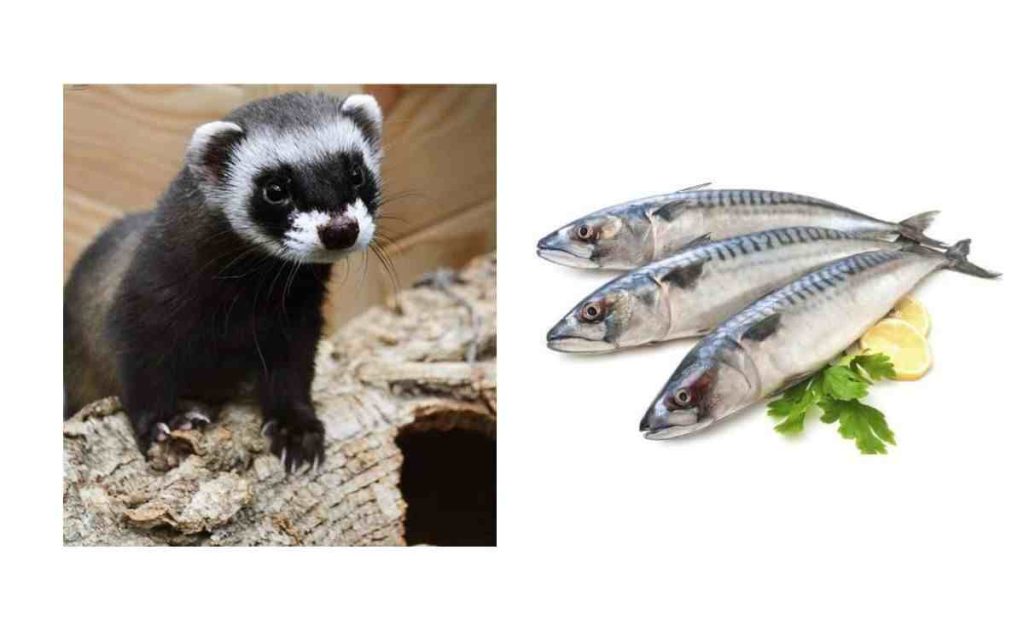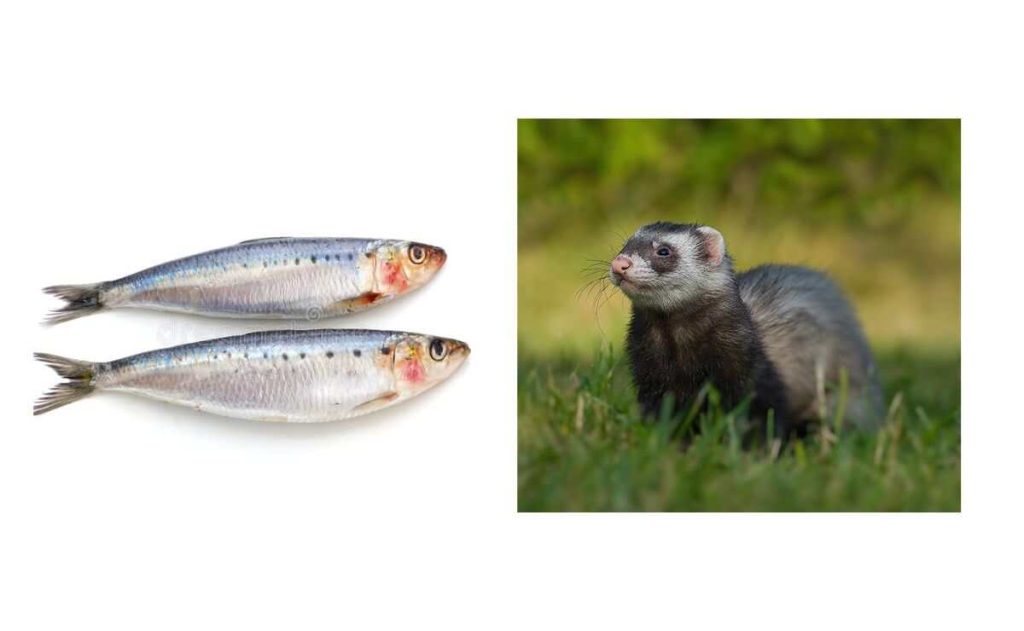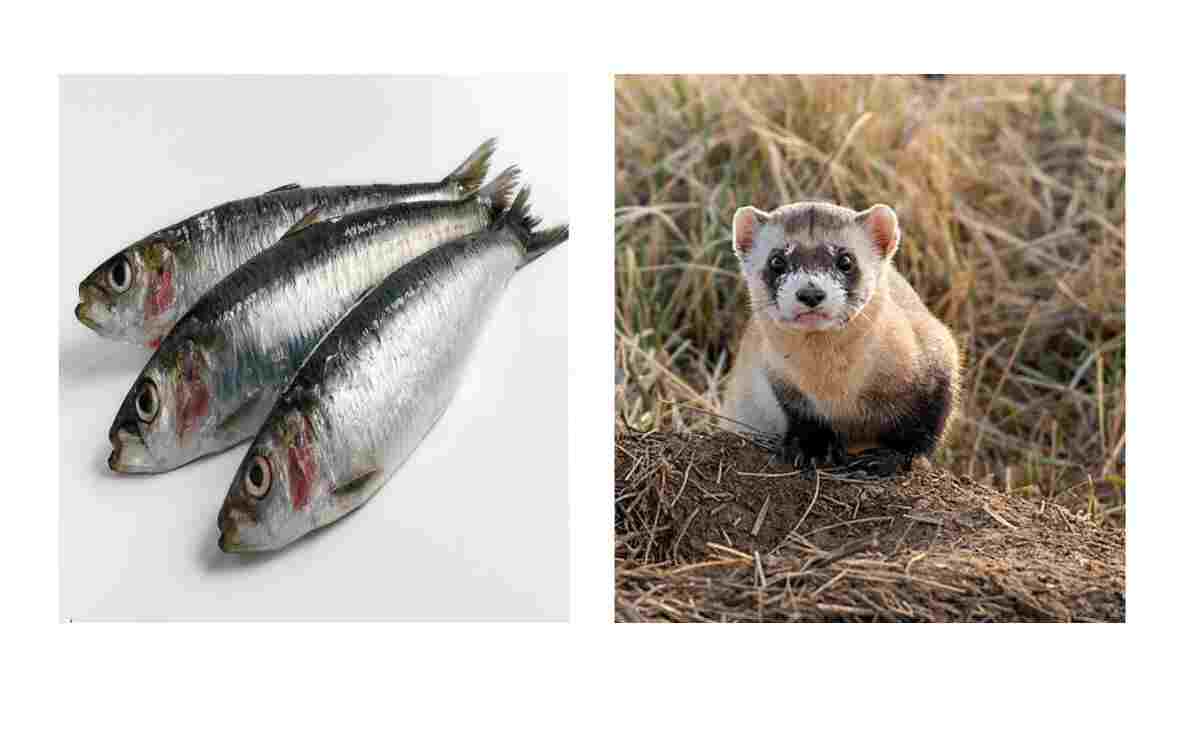The dietary needs of ferrets are very different from usual pets. Typically, their diet contains meat. Their diet requires high animal-based protein sources, high fat content, and low carbohydrates.
You can occasionally include fish in the ferret’s diet. But, can ferrets eat sardines? Yes, they can. These fish are high in protein and healthy fats which helps in a ferret’s metabolism. However, while feeding your ferret sardines, you must be cautious of portion control and frequency.
Too much sardines can harm your ferret’s health. So, to know how much you can feed and how you can do so, keep on reading!
Can Ferrets Eat Sardines?

Yes, sardines are safe for ferrets to eat in moderation. You can include sardines in your ferret’s diet. Sardines provide a lot of healthy protein to your ferrets. As a result, they can get a healthy metabolism.
Sardines work as a big source of protein for these obligate carnivores. Also, they are a good source of vital fatty acids, especially omega-3s. The proteins can help ferrets to have better muscular growth and general health.
In addition, the nutrients improve their skin and coat health, as well as cardiovascular health. If your ferret has any skin disorders, the anti-inflammatory effects of omega-3 fatty acids can be especially helpful.
Additionally, sardines are an incredible source of vitamin D, calcium, and phosphorus. All of them work to improve their bone health and general vitality.
Nutritional Benefits Of Sardines For Ferrets
When added to a ferret’s diet in moderation, sardines can provide a variety of health benefits. The key nutritional values are given below:
- High-Quality Protein: As ferrets require animal-based protein, sardines are a great source of it. About 25-30 grams of protein can be found in every 100 grams of canned sardines.
- The Omega-3 Fatty Acids: Sardines are excellent sources of EPA and DHA. These fatty acids are necessary for ferrets’ general health and well-being due to their anti-inflammatory characteristics.
- Vitamins and Minerals: Nutrients like vitamin D, calcium, and phosphorus are present in sardines.
- Healthy fats: Sardines have 10 to 15 grams of fat per 100 grams. Unsaturated fats like these particularly help your ferrets.
- Calories: In 100 grams of canned sardines, your ferret will gain about 200-250 calories. Thus, if your ferret is low in weight, you can use this for his/her benefit.
How To Feed Sardines To Ferrets?

As sardines or any other fish are not the primary source of food for ferrets, you need to control the portion. Here is a guide on how you can feed sardines to your ferrets.
Keep Moderation In Mind
You need to feed your ferrets sardines in specific quantities. They might have some potential health benefits, but ferrets don’t have the digestive system to digest too much fish. Therefore, try keeping sardines as a secondary source of nutrition by keeping them as occasional treats.
Sardine treats should be given no more frequently than once a week. But it also depends on your ferret’s tolerance level. So, remember to consult your pet’s vet beforehand.
Cooking Method
It’s better to serve raw sardines to your ferrets. Ferrets prefer raw fish rather than cooked. Don’t overcook it in oil if you are feeding cooked sardines. Also, keep an eye out for bones as they can cause a choking hazard.
Consider crushing or slicing the sardines into tiny pieces to make them more palatable for your ferret. This makes it easier to swallow and less likely that s/he may choke.
Feeding Frequency
Sardines, like any other fish, should be given an occasional treat to your ferrets. If you provide them with it regularly, their regular diet will be messy. Also, you need to consider other nutritional facts so feeding sardines doesn’t occur as you’re exposing your pet to the same nutrition excessively.
Alternatives to Sardines for Ferrets
As you can only feed sardines in a certain quantity, seeking alternatives can be useful. First and foremost, you can give them quality commercial ferret food. Commercial ferret kibbles are a balanced and handy solution because they are created to supply all of the necessary nutrients your ferret needs.
Moreover, as they prefer meats and chicken, you can keep chicken and turkey in their diet. Poultry is an excellent supplement to a ferret’s diet because it is a natural source of protein that they typically enjoy.
A raw diet, which includes raw flesh, bones, and organ meats, is favored by certain ferret owners. As they are wild animals, they love raw meat, and their dietary needs can be fulfilled by this.
Risks Associated With Feeding Too Much Sardines To Ferret
Too much sardines, or any other high-fat meal, might be harmful to your ferret’s health. Here are the main dangers of eating too many sardines:
- Over-Consuming Fat: Sardines have a lot of fat, and we all know that eating too much fat can contribute to obesity. If you expose your ferrets to too much fat, they might face health concerns like cardiovascular disease, diabetes, and joint pain.
- Digestive Issues: The high-fat-containing sardines might be difficult for ferrets to consume if you give them too much. Excessive sardine consumption has been linked to gastrointestinal problems, including diarrhea.
- Displaced Diet: If your ferret gets used to having too much sardine, they will face nutritional deficiencies as it displaces other, more vital foods. They might even show a lack of interest in their regular diet.
- Mercury Exposure: Some sardine species may have higher than average mercury concentrations. Therefore, if you are not aware of the consumption, this can be toxic to your ferrets.
Wrapping Up
By acknowledging that ferrets can eat sardines, you should always take care of the quantity that you can provide to them to keep your ferret’s health in good condition.
Before introducing sardines to your ferret’s diet, make sure to consult a vet. They can give you the heads up about how much you can provide depending on your ferret’s unique needs.
